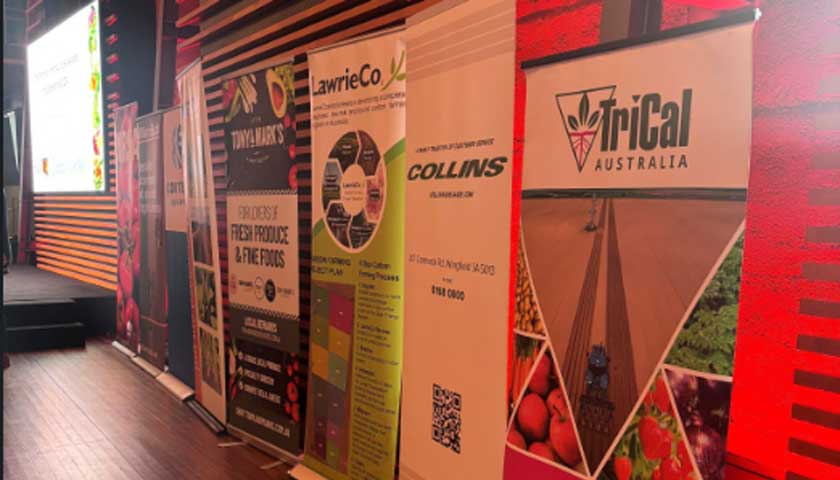Environmental Stewardship
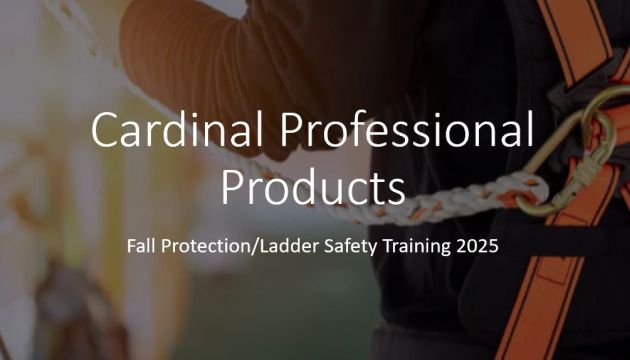
Did you know that Cardinal Safety Supply can also help you with trainings and safety program development? One of the leading causes of occupational injury and fatalities relates to Fall Protection and Ladder Safety! Let Cardinal Safety Supply help you choose and provide you with quality ladder and fall protection equipment as well program review and training!
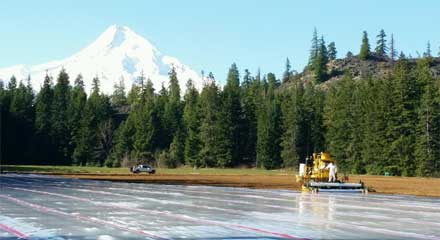

Cardinal Offers Training and Safety Program Development
Did you know that Cardinal Safety Supply can also help you with trainings and safety program development? One of the leading causes of occupational injury and fatalities relates to Fall Protection and Ladder Safety! Let Cardinal Safety Supply help you choose and provide you with quality ladder and fall protection equipment as well program review and training!
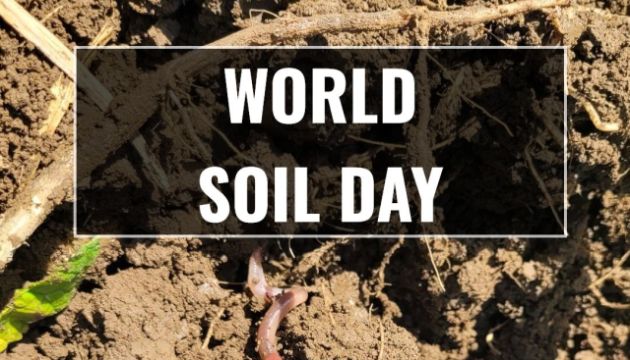
TriCal Group Celebrates World Soil Day
World Soil Day (Dec. 5th) highlights the healthy soils and sustainable agriculture. TriCal Group delivers science-driven solutions that protect and enhance this critical resource. Today we recognize the growers, advisers, and partners who work every day to steward the soil for future generations.

Teleos Ag Solutions Joins the American Chemistry Council
Teleos Ag Solutions joins the American Chemistry Council, and is honored to collaborate with peers across industries who share our vision of advancing sustainable solutions that help farmers thrive while protecting the soil and ecosystems we all depend on.

California Department of Pesticide Regulation Report
The California Department of Pesticide Regulation (CA DPR) recently released its annual produce monitoring report, which found that about 97% of fruits and vegetables sold in California had no detectable pesticide residues or residues below federal health-protective limits.

Cardinal Pro Products teams with Liphatech, Inc.
Cardinal Professional Products is very excited to partner with Liphatech, Inc. on this amazing EPA approved approach to protecting organic commodities. Looking forward to helping with any questions you may have. Cardinal's team is ready to assist with training, demos, on-site support.
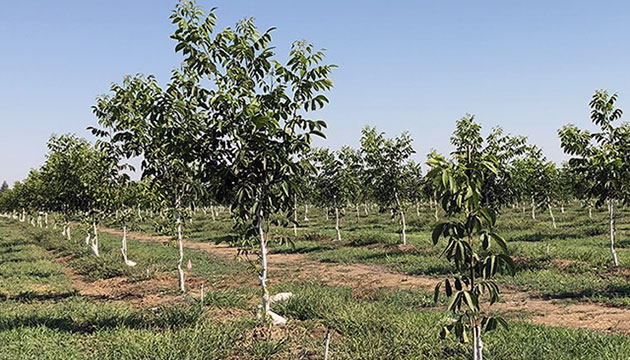
CDPR Study Shows No Impact for 1,3-D
The California Department of Pesticide Regulation (CDPR) recently reported the results of a study conducted in Stanislaus County on air concentrations of three soil fumigants. No measurements exceeded 4% of the regulatory threshold, meaning there was no impact from the application of these fumigants.
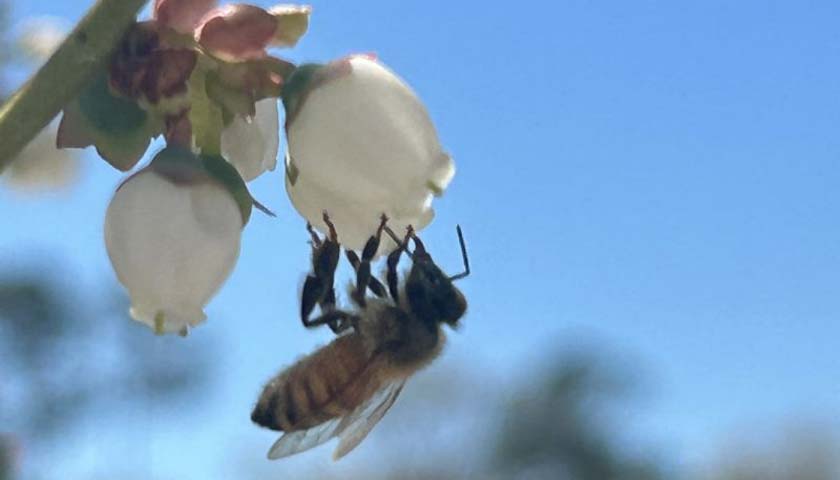
Honeybees enjoying Georgia Blueberry Blooms
Spring is here. It won't be long before there are some sweet Georgia Blueberries ready for picking. This honeybees is still busy enjoying these white blooms before they develop into healthy and delicious berries, ready for your table.

Stronger Plants, Better Yields, Fewer Resources
Stronger plants, better yields, fewer resources - and a lower carbon footprint. Potato growers face big sustainability goals, but with the right tools, we can get there—without sacrificing productivity. One tool that’s helping make this possible is Strike, driven by the chloropicrin.
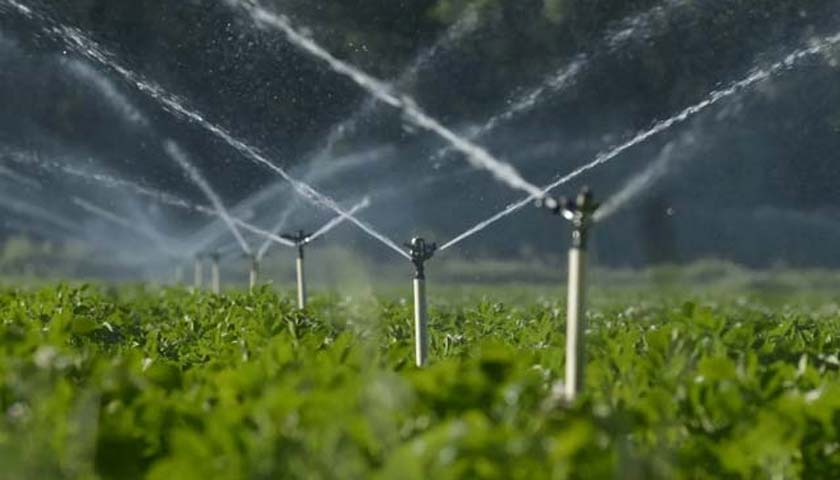
Functional Sustainability: How Using TELONE™ Can Lower Water and Fertilizer Inputs
In modern agriculture, the efficient use of resources is paramount. Growers seek ways to optimize water and fertilizers while maintaining or enhancing crop yields. By applying TELONE™ before planting roots can develop without the hindrance of pests.

TELONE™ Stewardship Training
Teleos Ag's Mid-Atlantic TELONE™ Specialist Greg Roberson hosted a stewardship training this week with one of his distributors. Stewardship is a core value for us and we want to make that anyone using TELONE™ has the information they need to safely store, transport, and apply TELONE™.
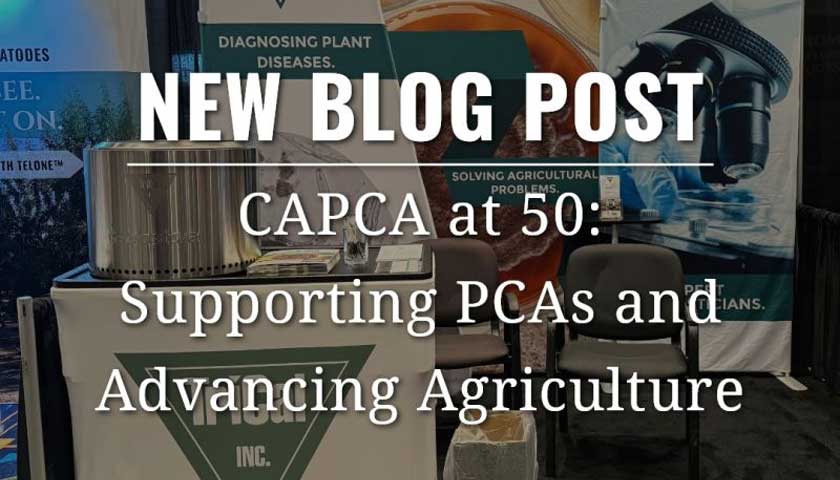
CAPCA at 50: Supporting PCAs and Advancing Agriculture
This year, CAPCA hosted its 50th Annual Conference & Agri-Expo South at the Disneyland Hotel, an event that brought together industry leaders, including TriCal Inc. & TriCal Diagnostics, to network and stay informed about the latest advancements in agriculture.
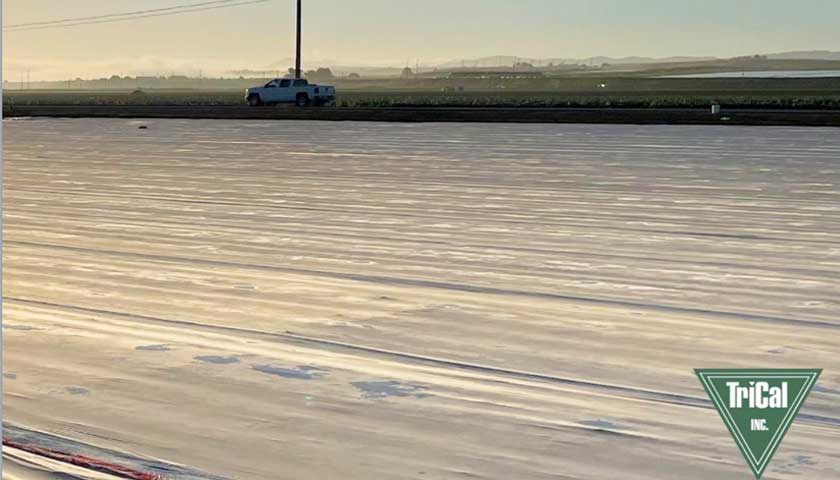
TriCal Inc. covers in California in Plastic
At TriCal Inc. prioritizes safety, and stewardship to ensure that we can continue growing healthy fruits and vegetables while safeguarding our communities and the environment. It keeps soil treatments contained, ensuring they stay in place and don't spread beyond the field.
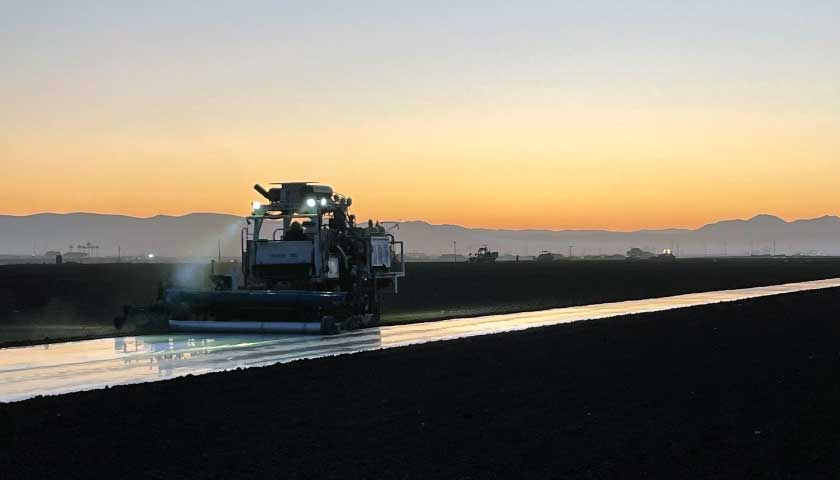
Strawberry Fall Fumigation Underway
This grower in Santa Maria, California is prepping their soil now to ensure a bountiful strawberry harvest. TriCal’s qualified Pest Control Advisors (PCAs) offer valuable guidance to strawberry growers, helping them maintain a healthy soil biome while prioritizing environmental stewardship.
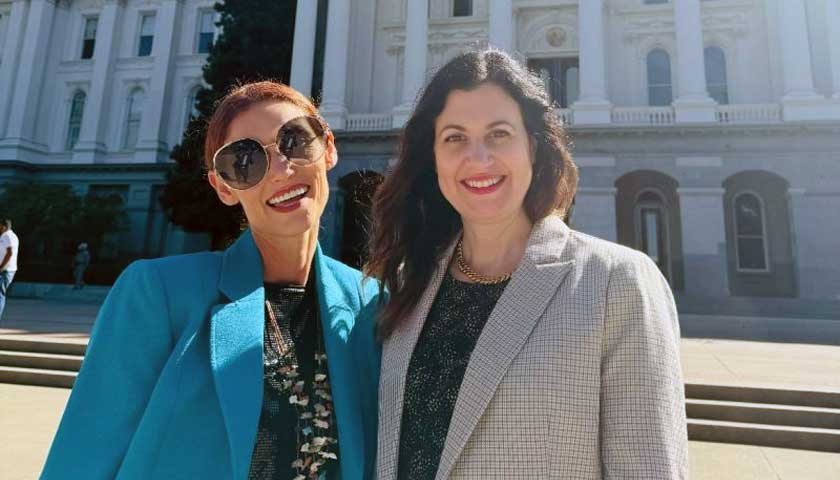
Trical visits with California Legislators Advocating for Soil Fumigation
Colleagues Courtney Ross-Tait and Kara KeziosKara Kezios were in sunny Sacramento educating legislators and advocating for the benefits of soil fumigation. Soil fumigation leads to soil health by creating healthy root systems. TriCal, Inc. has been in business for over 60 years improving crop yield and quality for farmers and growers in California and all over the world.
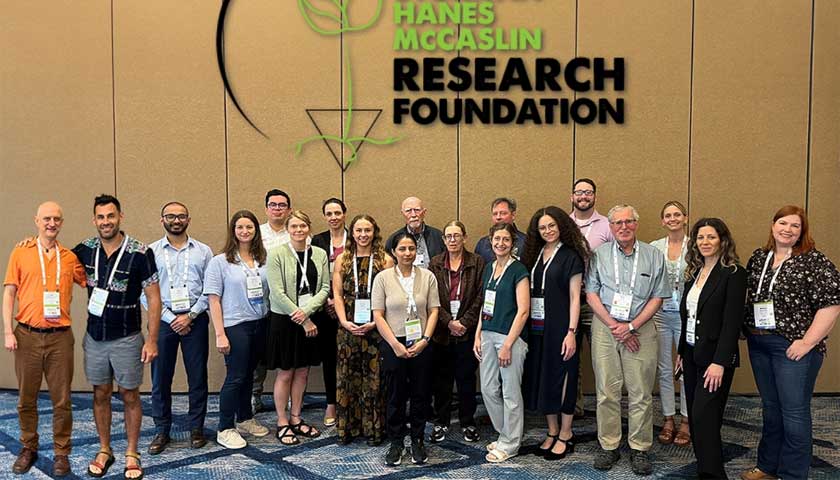
2024 Storkan-Hanes-McCaslin Research Foundation Award
TriCal Inc. is excited to announce the winners of the 2024 Storkan-Hanes-McCaslin Research Foundation Award! Join us in congratulating Sudha Upadhaya from Washington State University, Ram Neupane from Penn State University, and Corrie Vincent from Memorial University of Newfoundland.
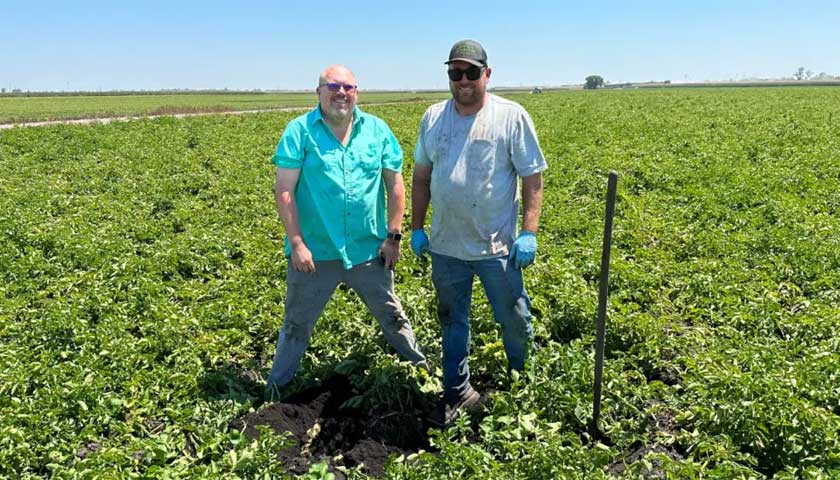
Agricultural Science Done Right Resolves Social Science Intentions
Farmers are hungry for tangible ways to increase their sustainable efforts while maintaining economically viable yields. A lot of voices are calling for farming reform. However, feel good soundbites don’t feed the world. Potato producers are keen for real solutions.
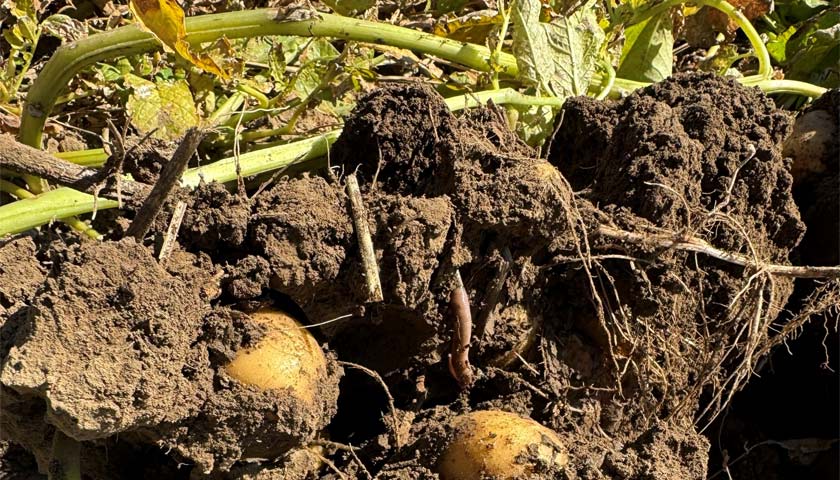
Meister Media Worldwide's Annual Soil Health Report.
Meister Media Worldwide's Annual Soil Health Report is now available! Our very own Dr. Randy (RM) Huckaba was interviewed for the piece, sharing thoughts on how soil fumigation with TELONE™ can be a vital part of a sustainable pest management plan.
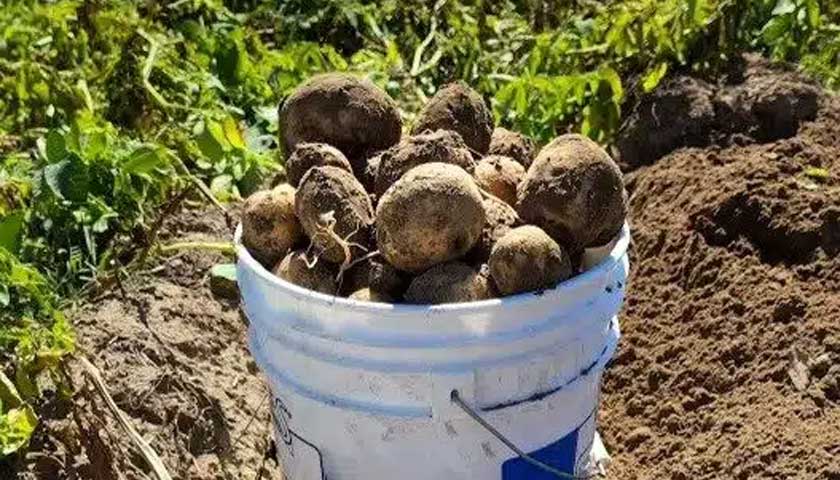
Do You Know (And Appreciate) the Hidden Heroes Beneath Our Feet?
One gram of soil can hold more than 50,000 species of microbes, all living, breathing, interacting and impacting our soil, land, and air. Swiss researcher Mark Anthony recently calculated that soil is home to 59% of Earth’s total life, the most biodiverse habitat on Earth!
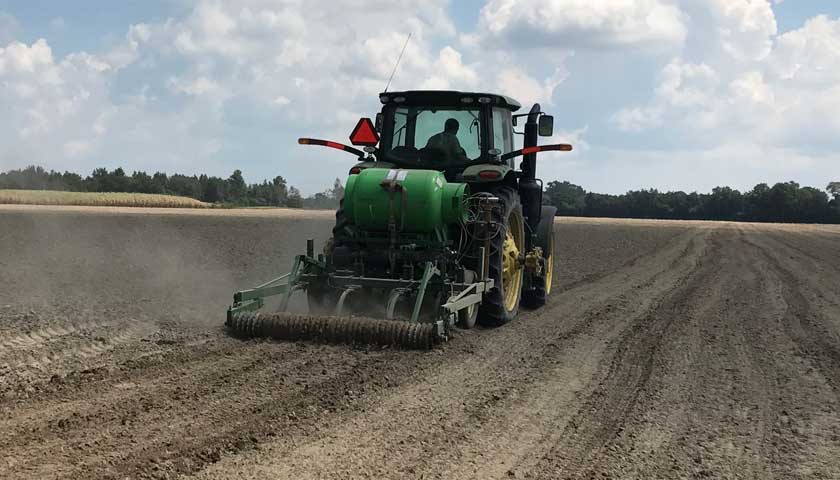
Breaking Down the Details on Chloropicrin
Chloropicrin has been used as an agricultural product for soil-borne pest suppression in specialty crops throughout the world for over 60 years. It is a bio-nutritional soil fumigant that breaks down into elements that are naturally utilized by plants: carbon, chlorine, nitrogen, and oxygen.
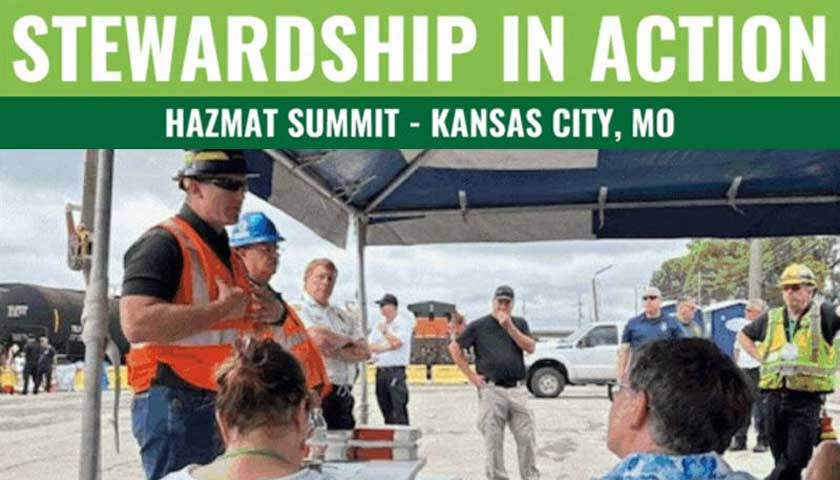
Teleos Attends EHS Safety Training Conference
Teleos' Stewardship Manager Justin Harrison, attended the annual Alliance of Hazardous Materials Professionals, Incorporated (TM) (AHMP)'s EHS Safety Training conference in Kansas City, MO. Justin is at the forefront of hazardous materials management, and this was an excellent opportunity to learn from industry experts and fellow professionals.
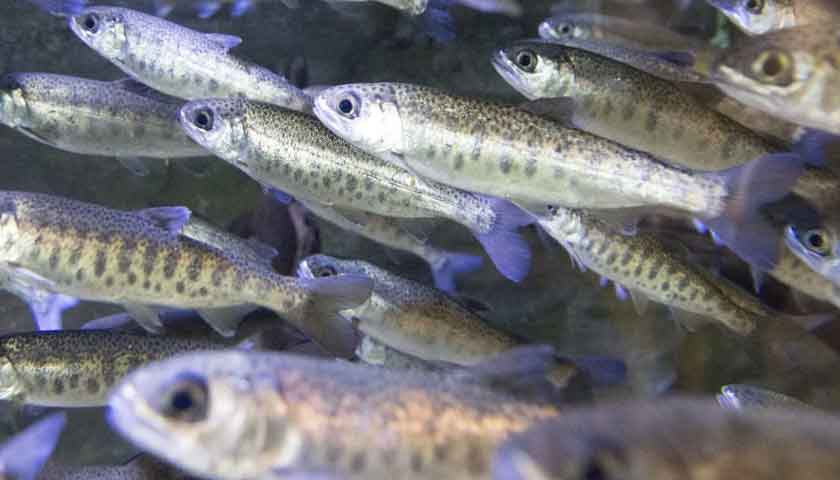
TELONE™ Application & the Endangered Species Act
Navigating the Endangered Species Act (ESA) and responsible pesticide management exemplify our commitment to fostering a world where humans and wildlife thrive in harmony, embodying the shared vision of growers, conservationists, policymakers, and communities alike.
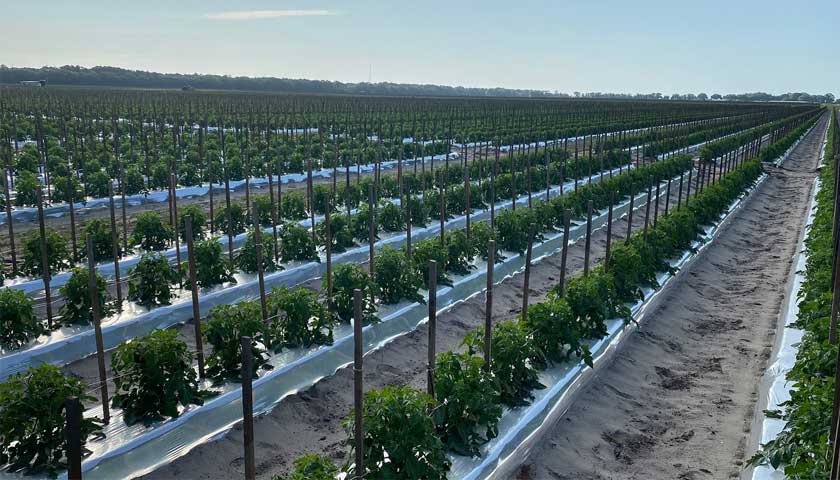
Triest Ag Group: Partners in Profitability
There is a lot of talk about sustainability and regeneration in agriculture these days. But what do those terms really mean? If you ask five people, you might get five different definitions. But for Josh Mays, Director of Agronomy for TriEst Ag Group, it all starts with profitability.
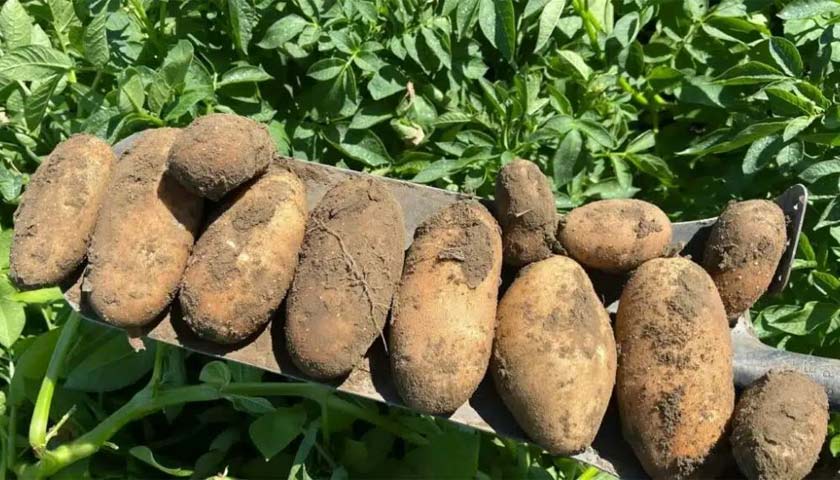
The Unintended Limits of Organic Farming
“Organic has its place, but it’s really important to define what organic is — and what it isn’t — especially in the context of sustainable ag. Organic has rules and limits, but it doesn’t necessarily always translate to maximum actual regenerative impact.”
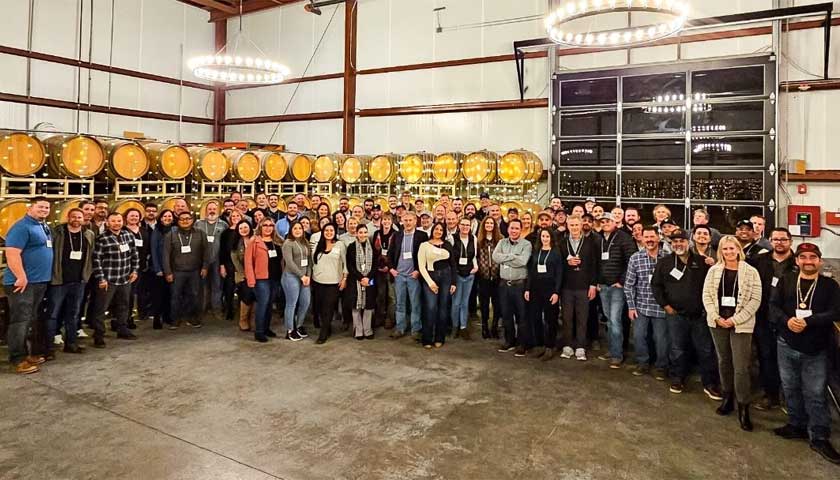
Stewardship Keeps Us All In Business
Being a good steward means taking care of what is yours, and TriCal Inc. prioritizes the careful and responsible management of what has been entrusted to us. It is our job to have a strong team, to offer the highest quality products and services, to follow all laws and regulations, and to meet the needs of those in our industry.
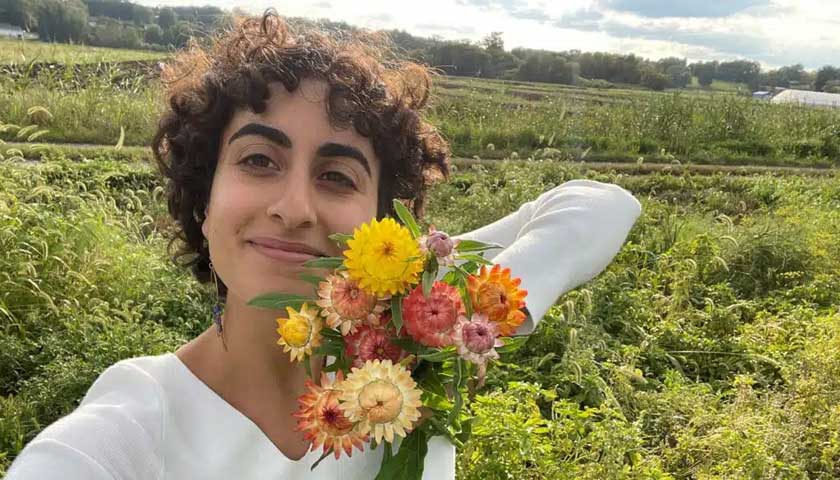
A High-tech Look Inside Soil’s Microbiome
Chad Hutchinson is pleased to discuss soil microbes and sustainability with Joy Youwakim, an agroecology scientist at Biome Makers, an independent, third-party genomics company that specializes in DNA sequencing of agricultural soil samples.
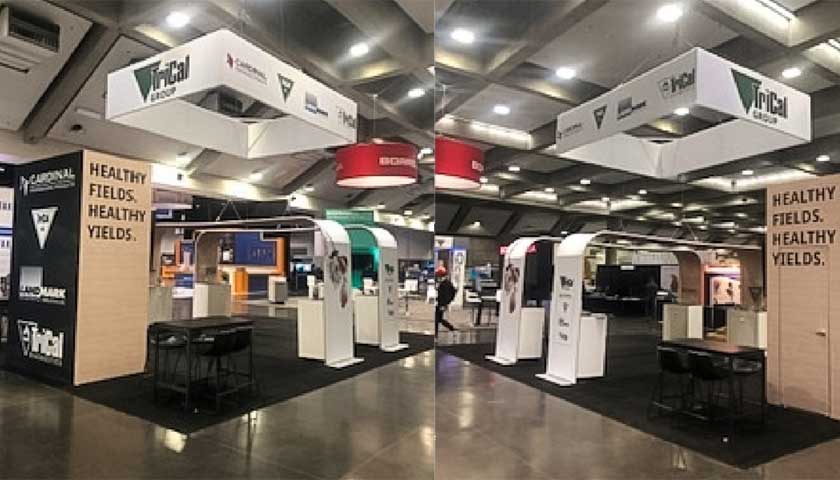
California Is Nuts
The Almond Board of California hosted the 51st Annual Almond Conference, sharing our knowledge and connecting others in the industry. The conference supported the Almond Industry in field trial research that TriCal Group does through our companies (TriCal Diagnostics, TriCal Inc., Landmark Irrigation, and Cardinal Professional Products).
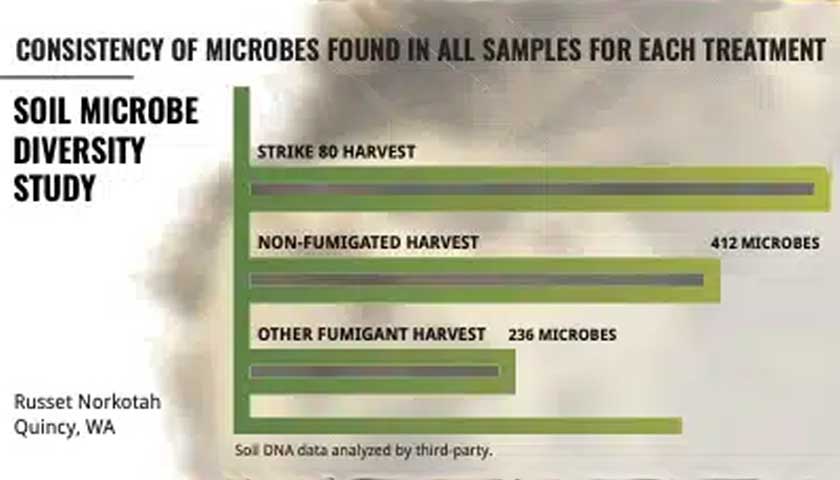
Pushing for Sustainability Is Good, But Only If We Know What We’re Aiming For
You’d be hard pressed to look anywhere in agriculture today without running into the word ‘sustainability’. The whole industry is pressing forward on sustainability…but what does sustainability really mean? How do we define sustainability’s goals?
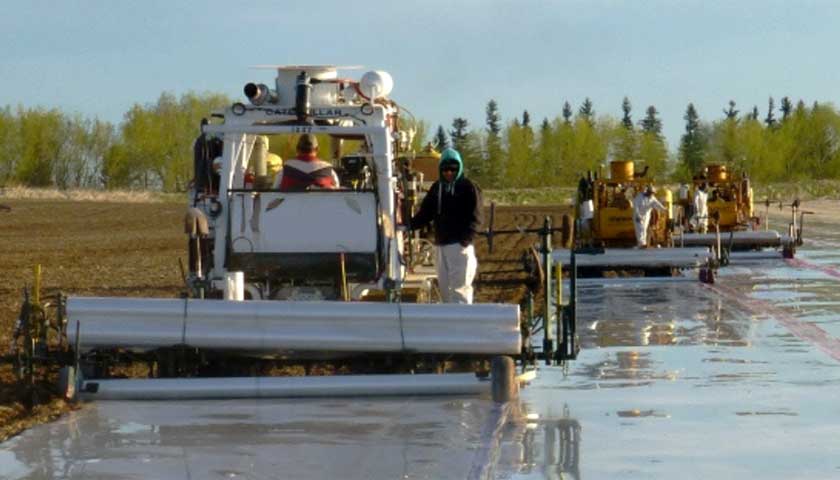
Ensuring Safe Agriculture: The Important Role of Product Stewardship
In the dynamic landscape of modern agriculture, the responsible use of chemicals has become paramount to ensure robust crop yields and the well-being of ecosystems, farmers, and consumers. This is where the concept of product stewardship takes center stage.
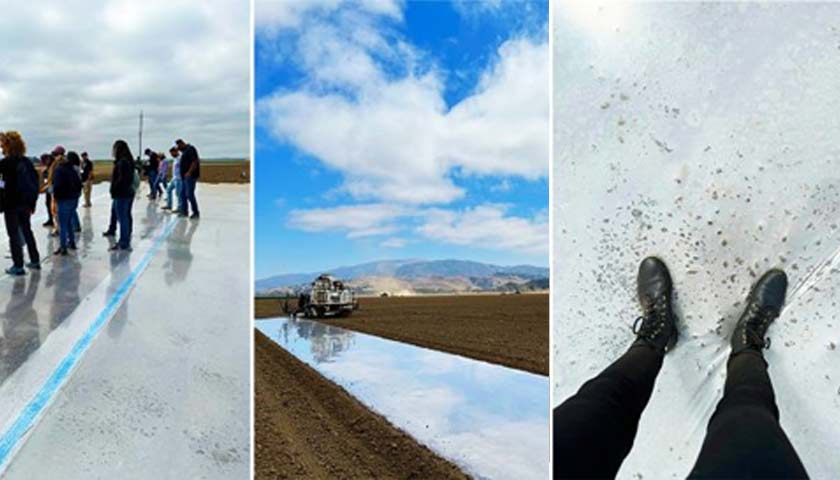
Educational Outreach: Agknowledge Program in Salinas, California
The Agknowledge Program in Salinas, CA, organized by the Grower-Shipper Association Foundation, is an excellent initiative that brings together key stakeholders in the Monterey County community to educate them on critical issues affecting the local agricultural industry.
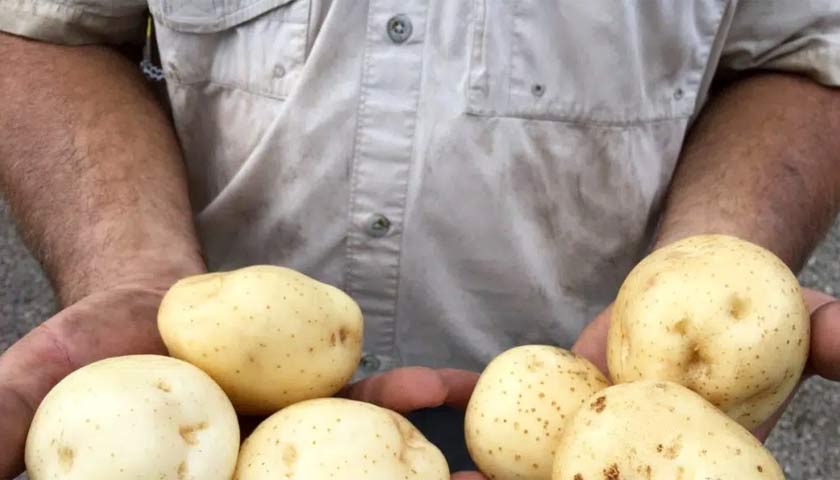
What’s Biting into Your Farm’s Economic and Environmental Sustainability?
Up to 58 per cent of all the food produced in Canada is lost or wasted each year. Think about that: nearly two of every three potatoes you grow get chucked. If you are like most farmers I know – strong and honorable people who are proud to be part of feeding the world – knowing that so much of your effort is wasted is nothing short of offensive.
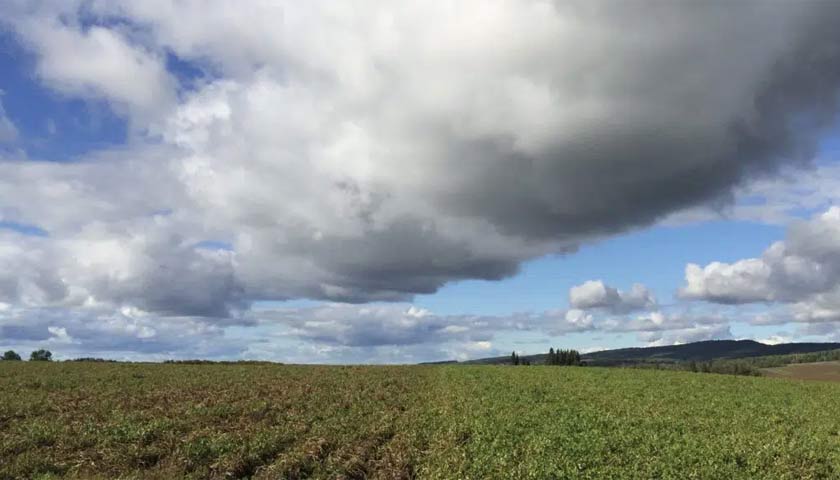
Sustainability = Environmental Stewardship, But Economic Success Too
Sustainability is one of the more commonly misunderstood concepts in agriculture today. At times agricultural success, especially higher productivity, is put at odds with ‘sustainability’. This is not necessary, and here’s why.
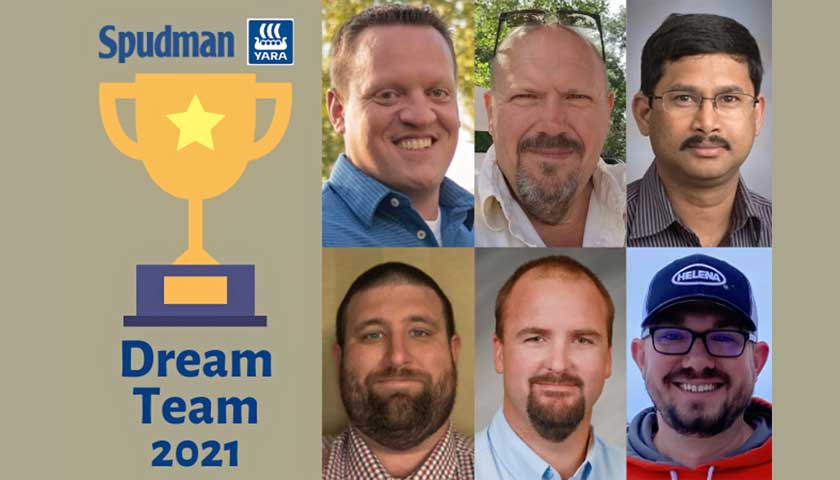
Spudman announces potato industry Dream Team 2021
As the global director of potato research and market support for TriCal Group, Hutchinson is a master of soil health and disease suppression. He is the industry’s leaders in research and isn't shy. He is often a speaker at potato-related educational opportunities, like Potato Expo.
